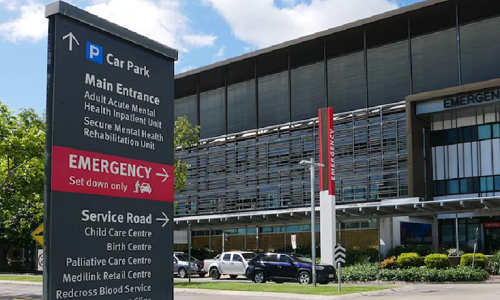Calls for National Regulation of Audiologists: Townsville hospital audiology failures prompt millions in compensation.
As reported in this article by Andrew Messenger for The Guardian, The Queensland government will pay more than $2.2m to families of 97 child patients of a hospital’s audiology unit.
Townsville University hospital’s audiology unit programmed cochlear implants in some children incorrectly and misdiagnosed others, an independent review has found.
The clinic is the only public option for many patients in northern Queensland, who would otherwise be forced to travel to Brisbane for specialised care.
The clinic was poorly organised, staff were overworked, and key protocols did not appear to be followed, leading to poor outcomes, monitoring, measurement, and reporting.
An investigation was conducted and last week a report was published. Read the report. The Queensland government has promised to spend more than $2.2m compensating the families of 97 patients who required additional testing and follow-up care as a result of the errors.
Children left with lifelong developmental delays.
Concerns about the audiology service were first raised in December 2022, after the clinic mistakenly identified a number of babies and children as either having normal hearing or a non-permanent issue when in fact they were profoundly deaf.
An initial investigation identified that the hospital’s cochlear implant program was also flawed, with clinicians failing to program the technology in a way that would allow children to hear correctly, leading to developmental delays.
The clinic also failed to properly follow up patients to ensure they were learning to speak.
Health staff identified 341 patients for review, including adults, with 59 requiring a recall, 20 of them urgent.
The Townsville Hospital and Health Service CEO, Kieran Keyes, acknowledged some patients would be affected for life, as a result of developmental delays caused by the mistakes.
Keyes said the hospital had since identified an additional 18 people who were not part of the original risk group.
“We continue to investigate records on a risk basis and will continue to do that into the foreseeable future,” he said.
Keyes said it was “destabilising and pretty shattering” to have the community’s confidence in the service rocked.
Approximately 40 families of children who experienced the most significant impacts have been offered $50,000 while an additional 57 children recalled for additional testing will be offered $5,000 by the state government.
Reluctance to report concerns.
Conducted by a team of external health service investigators, the investigation found that some team members expressed “reluctance to report concerns due to a fear of receiving a negative response from audiology leadership”.
No staff had reported concerns before the inquiry was launched in April, partly due to their lack of understanding of the system for reporting them.
It also uncovered a number of concerns relating to conflict of interest, which “influenced decision making and professional judgment”.
The investigation also looked at whether the clinic focused too heavily on scientific research rather than working with patients, with some members of the unit telling investigators that research was perceived as the only way to advance their career, and “was more highly valued than clinical work”.
The review ultimately could not determine if the unit’s emphasis on research came at the expense of patients, but deemed that the workload was poorly managed.
Calls for better regulation of audiologists nationwide.
The Queensland health minister, Shannon Fentiman, said it was time for better regulation of audiologists by the federal government, noting the similarity between the issues uncovered in Townsville to those reported in South Australia.
“The South Australian health minister and I will be raising this in Perth at the health ministers meeting”, she said.
“And we will be advocating for audiologists to be the next profession registered by the Australian Health Practitioner Regulation Agency (AHPRA).”
Professional body, Independent Audiologists Australia (IAA) said it was saddened but not surprised to see these issues surface in hospitals across multiple states (QLD and SA).
IAA believes that should similar reviews be completed throughout Australia, further issues with quality of outcomes and standards of Audiology care would inevitably be revealed.
IAA was pleased that QLD Health Minister Shannon Fentiman would be advocating for Audiologists to be the next profession registered by AHPRA. IAA urged all State Health Ministers to recognise the importance of external regulation of Audiology as a profession to safeguard against future events such as these, along with other risks to the public that are not well-controlled at present.
Australian College of Audiology commented.
“We recognise the huge life-long impact on these children and their families. As a professional body we are working within the sector to identify and advocate for changes that can guide our clinicians and better support children with Cochlear implants and their families.”
Audiology Australia, representing the clinicians issued a statement.
President Barbra Timmer said “We recognise that this will be a difficult time for many of our members.”
“Our profession is once again faced with sobering reflection as we grapple with the impact of systemic and program issues on the families and children involved,” she said.
“We offer our thoughts to all the directly and indirectly impacted Audiology Australia members and we are here to support you.
“AudA also offers sincere sympathies to the children and families in Townsville who have been adversely affected by inadequate hearing care services,” she said.
“We are currently reviewing the findings and recommendations in more detail to understand how these may be reflected across our own policies and process to strengthen the audiology profession and support our members and clients.
Audiology is a self-regulating profession.
Occupational therapists, optometrists, osteopaths, pharmacists, physiotherapists and podiatrists are among the many who are regulated by the Government’s Australian Health Practitioner Regulation Agency.
Audiologists regulate themselves via their professional body.
The Australian Health Practitioner Regulation Agency ensures that Australia’s registered health practitioners are suitably trained, qualified and safe to practise. Public safety is our priority.
“We want the public to have trust and confidence in regulated health practitioners.”

